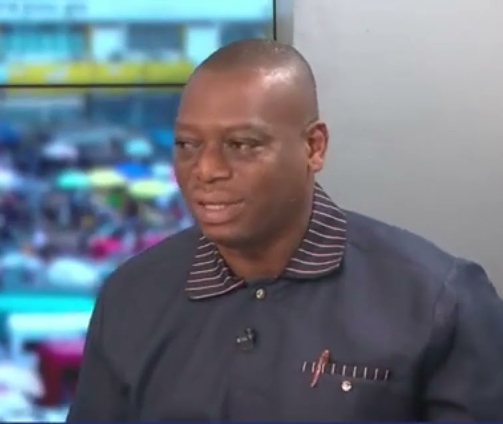Deputy Minister for Education, Prof. Kingsley Nyarko, has called on Organised Labour to reconsider its decision to embark on a nationwide strike over the issue of illegal mining, known as galamsey.
He made this appeal while speaking at the Ghana Teacher Prize ceremony in Kumasi on Thursday, October 3, where he addressed concerns about the planned industrial action.
Prof. Nyarko urged Organised Labour to explore alternative solutions, stating that a strike may not be the most effective way to address the galamsey crisis.
He emphasised the importance of continued dialogue and collaboration among all relevant stakeholders to find a lasting solution to the environmental degradation caused by illegal mining.
According to him, dialogue would yield better results than halting national productivity.
The planned nationwide strike, scheduled for October 10, was announced by Organised Labour in response to the government’s failure to declare a state of emergency over the galamsey menace.
Organised Labour argues that illegal mining has caused extensive damage to Ghana's environment, particularly to water bodies and farmlands, and more decisive action is urgently needed.
Prof. Nyarko, who also serves as the Member of Parliament for Kwadaso, stressed that while the concerns raised by Organised Labour are valid, striking would not necessarily bring about the needed change.
He reiterated the need for a cooperative approach, involving the government, labour groups, and other key players, to develop a comprehensive plan to combat illegal mining and mitigate its harmful effects.
“For me, it’s more about dialogue, because the government and individuals are concerned about the activities of galamsey. The government has put in place interventions to deal with this issue."
“It demands collective efforts not only from the government but from other civil society and the media should be involved as well, chiefs, traditional leaders, the clergy and everybody must come on board for us to deal with it"
“I will plead with Organised Labour that instead of embarking on strike we don’t know when it will end, the best way is to keep engaging the authorities for us to come to a meaningful, progressive and productive solution to this particular problem. Industrial action will only lead to a reduction in productivity that will affect our revenue.”
Latest Stories
-
Marital property law is gender-neutral and equitable – Justice Amaleboba
6 minutes -
Dr Bawumia is best positioned to lead NPP into 2028 – Egyapa Mercer
12 minutes -
CWC 2025: Can Xabi Alonso lead Real Madrid to victory?
14 minutes -
Mahama calls on MMDCEs to restore public trust through stakeholder collaboration
17 minutes -
Ghanaian destinies hang in the balance as US considers travel clampdown
18 minutes -
Mahama signals end of appointed MMDCEs, backs popular demand for elections
21 minutes -
Mahama cautions MMDCEs against misuse of Common Fund, vows no protection for offenders
28 minutes -
Socio-economic barriers responsible for fertility crisis, not desire – UNFPA global report
31 minutes -
West African agricultural stakeholders affirm commitment to prioritising soil health
31 minutes -
Assets declaration: Mahama’s sanction against flouting Ministers isn’t power usurpation – Justice Amaleboba
32 minutes -
NPP sets up 9-member committee for National Delegates Conference
38 minutes -
PA Conference 2025 launched to champion cross-border growth for executive assistants
44 minutes -
Ghanaian Hajj pilgrims who died had underlying health conditions – Hajj Task Force explains
47 minutes -
Annual district cleanliness will be measured and celebrated or shamed – Mahama tells MMDCEs
54 minutes -
We need experienced jurists at the Supreme Court – Justice Amaleboba
57 minutes

